General Motors has revealed that the Chevrolet Volt/Vauxhall Ampera extended-range electric vehicle (E-REV) can be powered by no less than three motors in certain circumstances – and as a result, has struck controversy with its claim that the Volt is always electrically driven and not a hybrid.
It has previously concealed the inner detail of the Volt’s propulsion arrangements because, it says, it has been seeking a patent for its Voltec drive system.
According to GM’s director of hybrid powertrain engineering Barry Nitz, the system is “patent-protected now, so we can talk about it”.
Read Autocar's first drive of the Chevrolet VoltEd Keohane blog: Chevrolet Volt - are we missing the point?
The additional motor in the system is the Volt’s generator, which can also become a motor and operate in tandem with the petrol engine under the heavy demands of high-speed cruising, assisting the main traction motor that always drives the car.
The reason for bringing in a second electric motor is energy consumption – at high cruising speeds, the efficiency of an electric motor drops off, placing heavier demands on the battery. To overcome this, a planetary gearset blends the outputs of both the combined generator/motor and the petrol engine, and the tractive motor. GM describes this as ‘indirect electro-mechanical drive'.
As proof that it is not the combined generator and petrol engine that are directly driving the wheels, it points out that if the tractive motor were removed from the system, the Volt would not drive. On this basis, it argues that the main tractive motor is always the driver of the wheels, and for this reason its claim that the Volt and Ampera are extended-range EVs holds good.
See pics pics of the Chevrolet Volt's controversial new tech
Whatever the semantics of the argument – which has lead to GM being accused of lying in some quarters – the result, says Nitz, is a “10-15 per cent improvement in fuel economy, and a mile or two of extra range” in pure EV mode when the petrol engine is dormant.
The planetary gearset blends the outputs of the two electric motors, allowing the main motor’s revs to drop from the 6500rpm needed to maintain the Volt’s maximum speed of 100mph to 3200rpm, where it operates more efficiently, while the generator/motor runs at 1500rpm.
It’s this ingenious arrangement that brings about the fuel savings, and it’s these drive kinematics, says GM, that it described in a patent application made in autumn 2007. The desire to hide this system from competitors is why it has not explained more about the system up to now.
Read Autocar's first drive of the Vauxhall Ampera
GM has also revealed that the efficiency of the battery, developed in partnership with LG Chem, now allows the pack to be depleted by 65 per cent rather than the 50 per cent originally planned, this allowing an improved electric-only range of “25 to 50 miles,” says Micky Bly, GM’s director of global electrical systems.
Up to now, GM has been claiming a maximum range of 40 miles for the Volt. GM’s eight-year, 100,000-mile battery warranty is unaffected by the increased battery depletion.

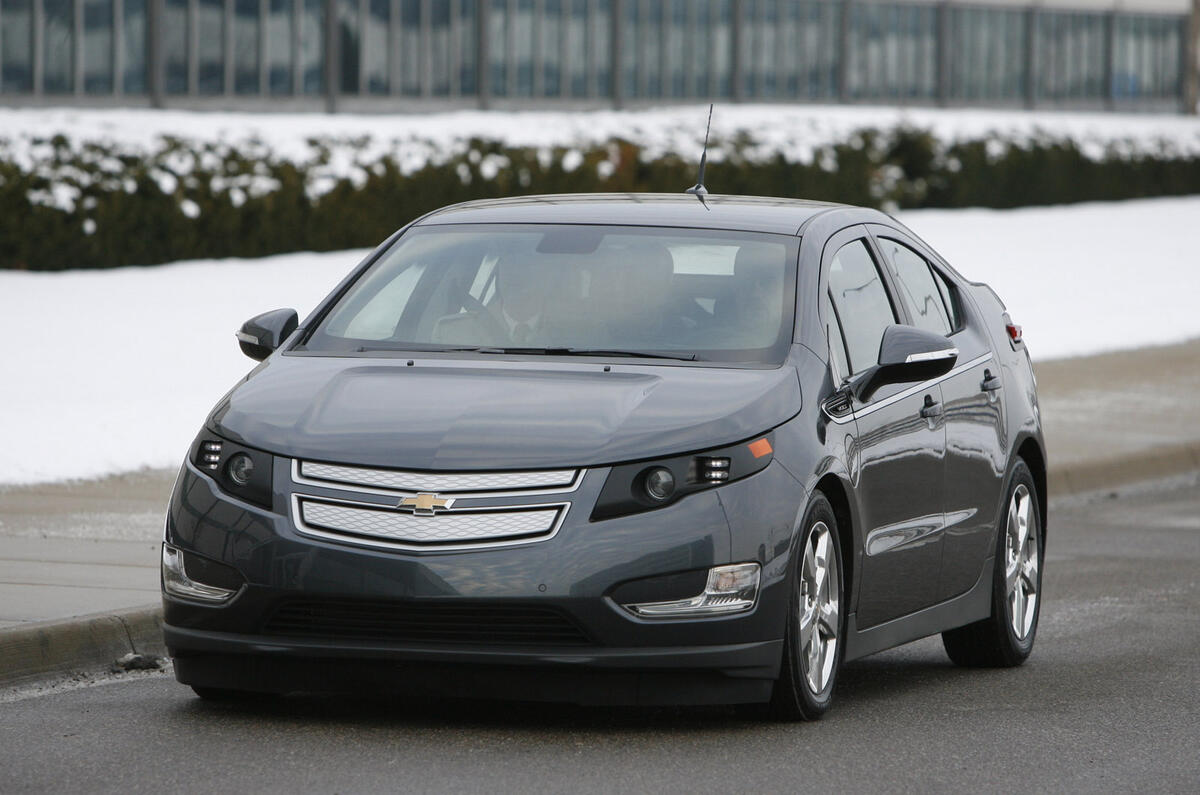
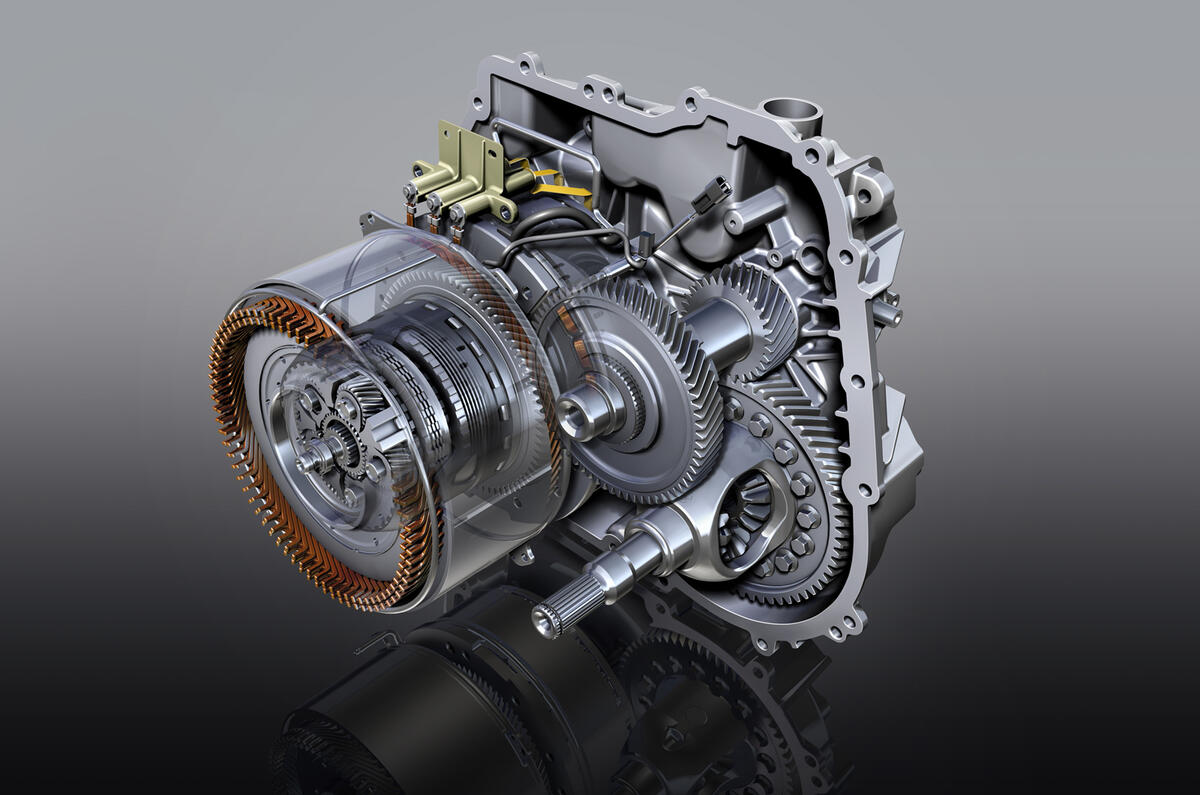
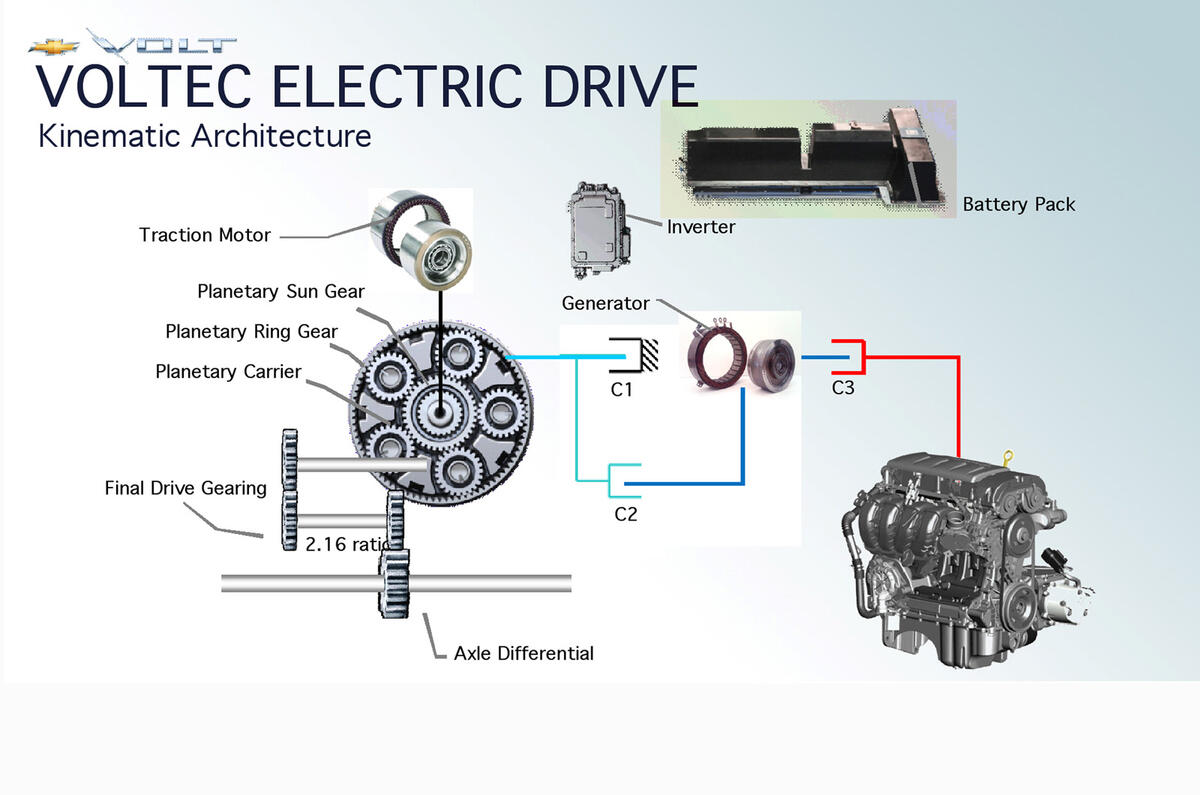
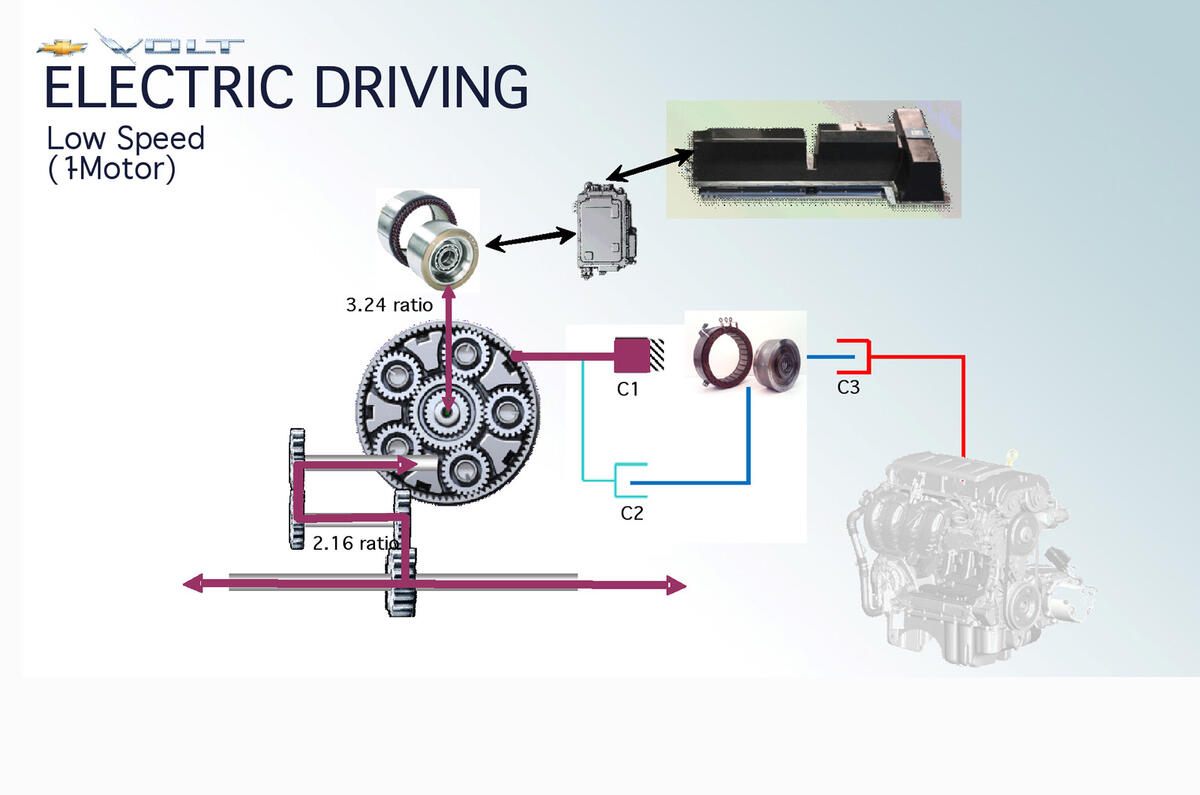
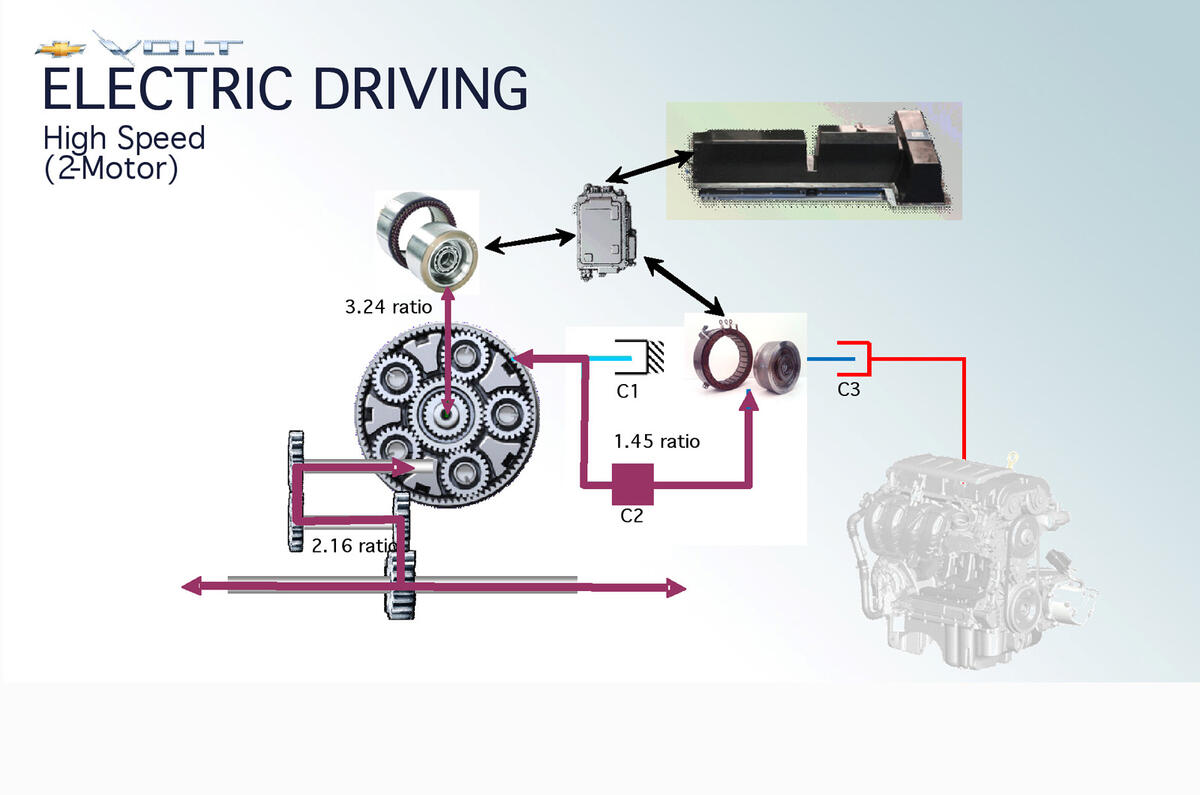
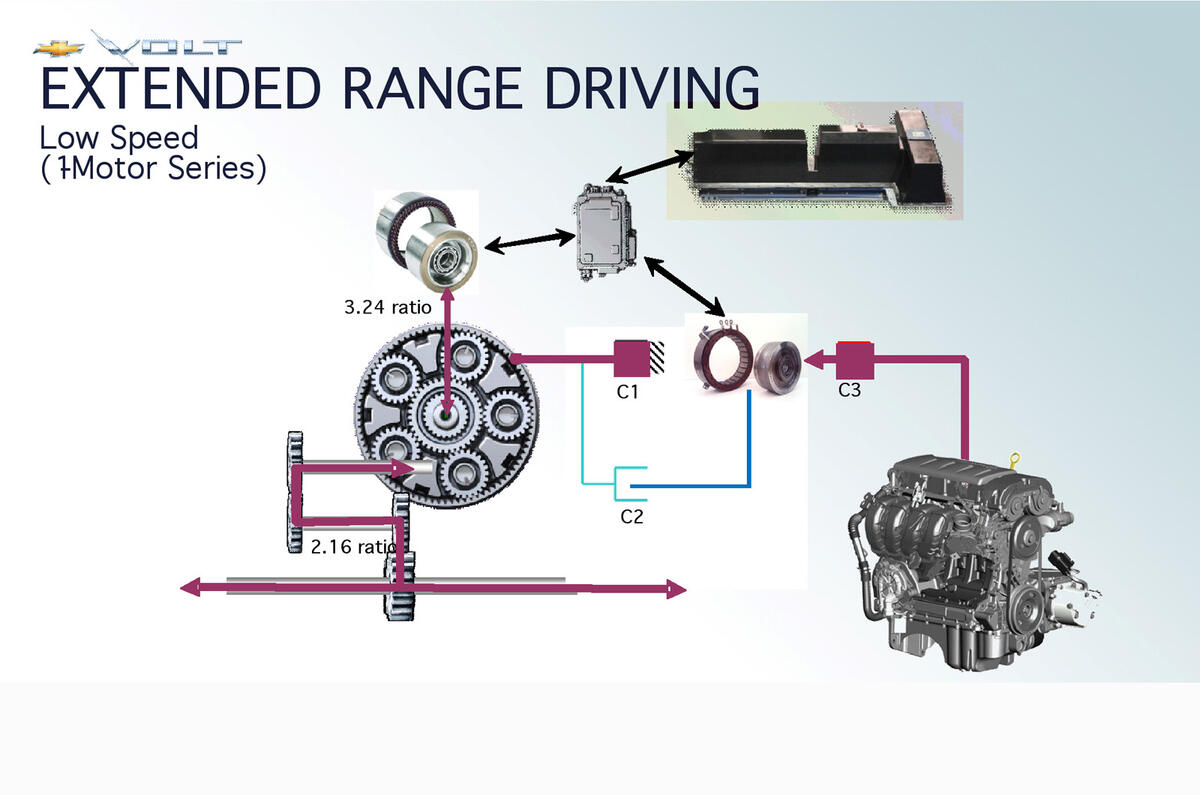
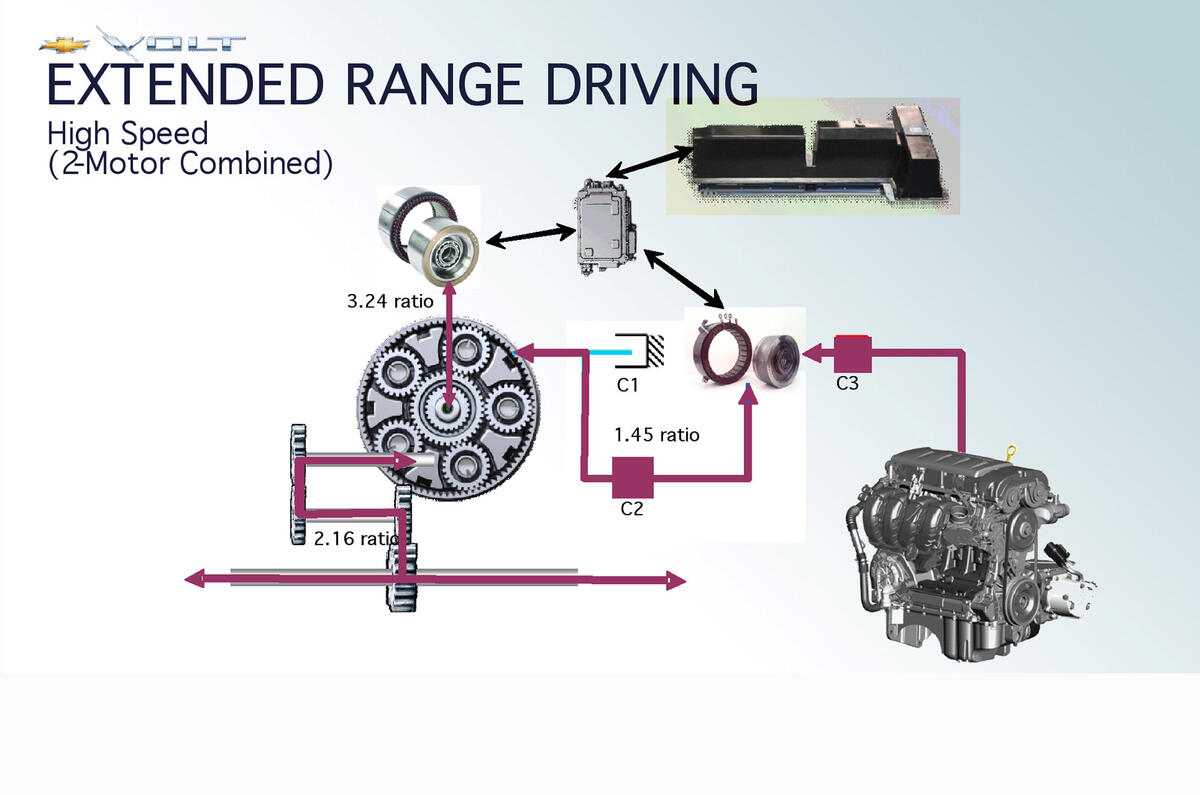
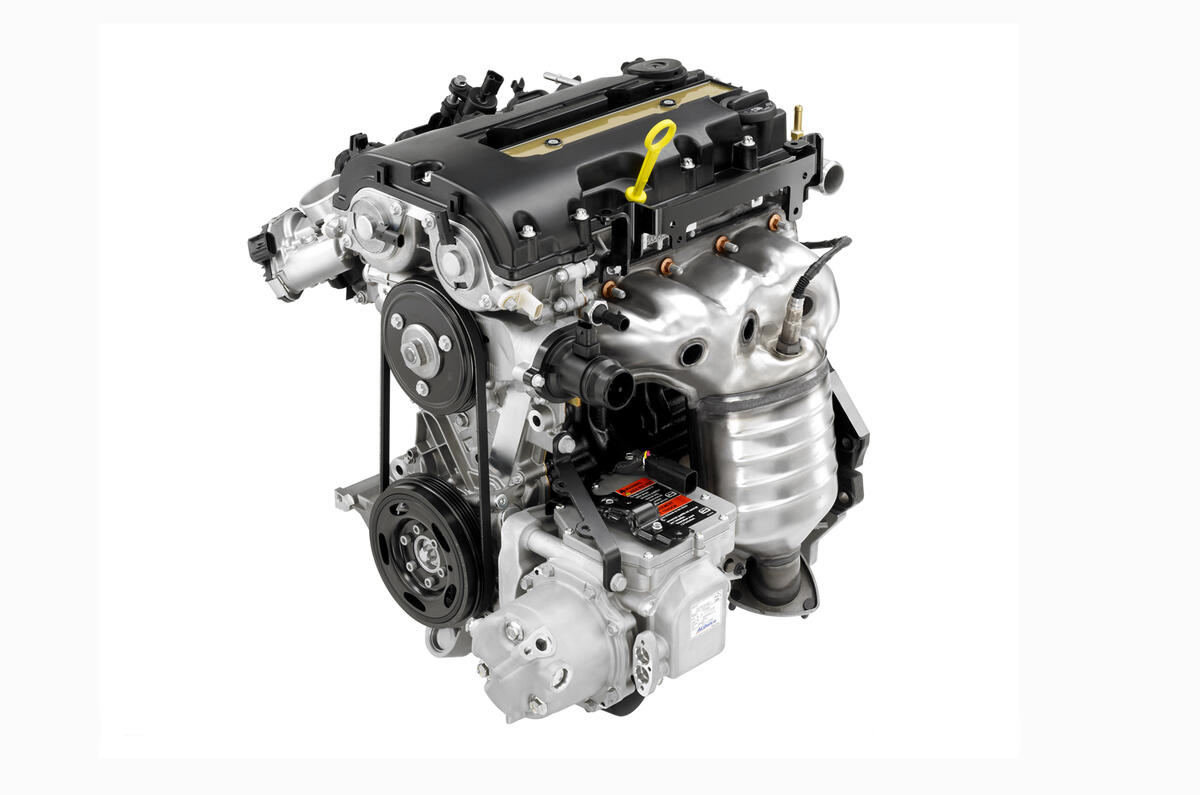
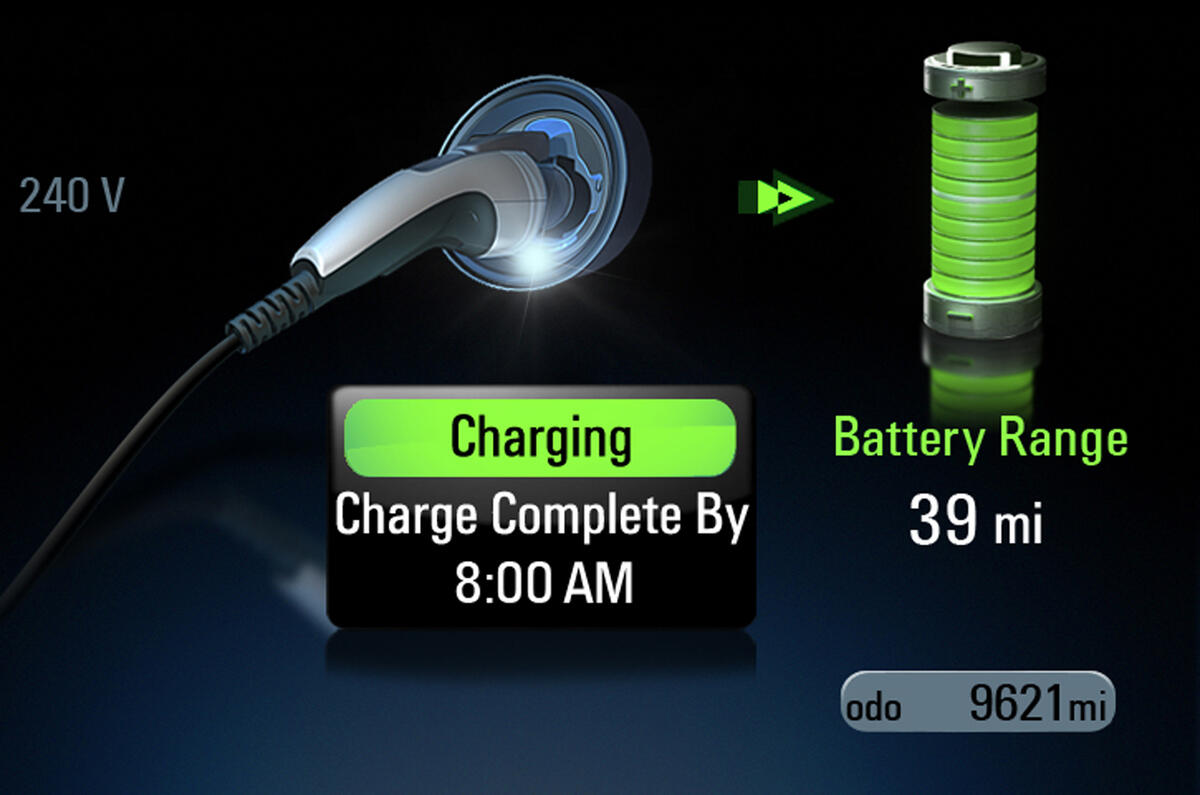
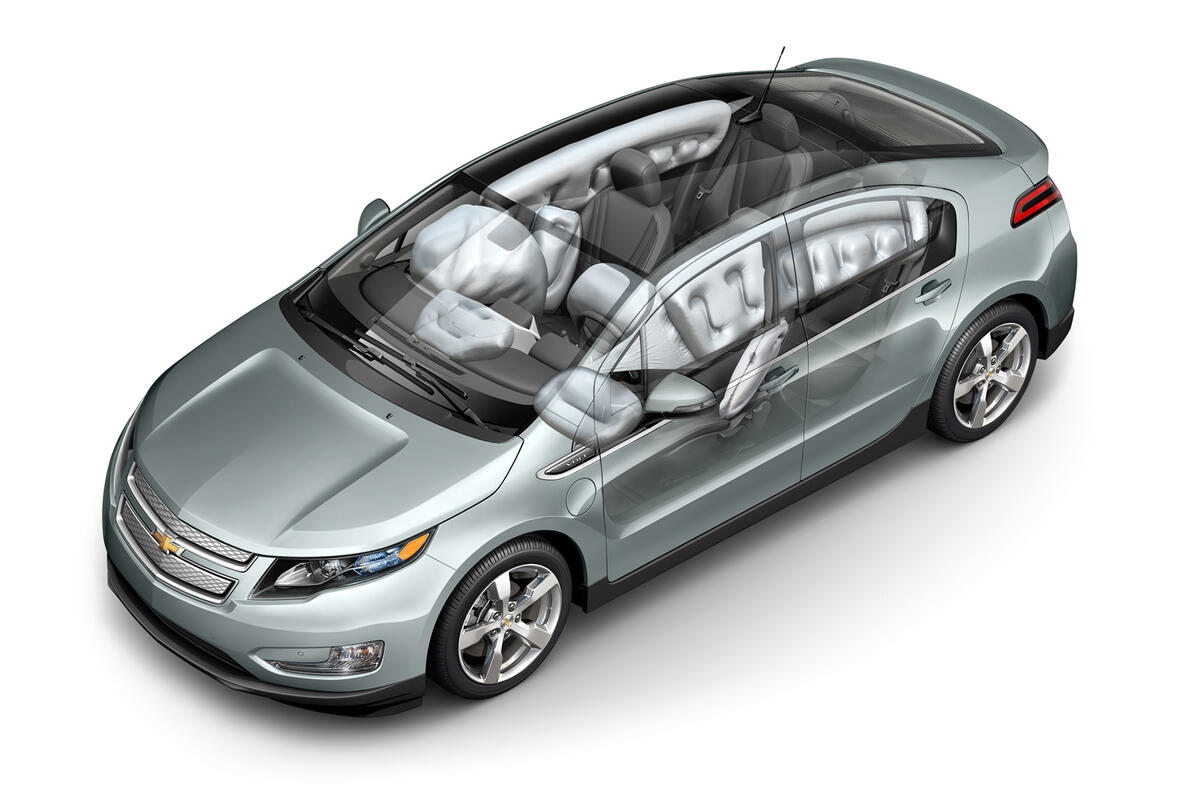


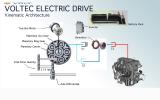
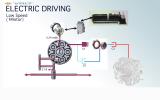
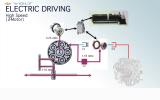
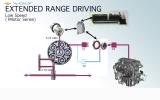
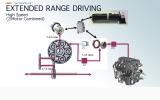

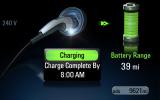
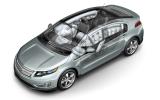


Join the debate
Add your comment
Re: Volt's three motors cause controversy
TBH, I wouldn't buy any of them.......I still think EV's are a diversionary tactic. Hydrogen is the way we should be going!
Re: Volt's three motors cause controversy
Thank you for the link MrTrilby. The problem is and always will be that there is no easy answer to the mileage an Ampera/Volt will get. Perhaps the best tagline for the Volt should be “Your mileage may vary” because it will vary greatly depending on how the car is used. Flogging around in charge sustaining mode is not what the car was designed for, but even if you did you would get above average fuel economy. If someone were to buy an Ampera with the thought of never plugging it in I would question their judgment. Used as intended the car provides fantastic economy, most using no petrol at all except the overnight charge, .40 to 1.60 here in the states.
I think everyone is a little weary of hearing about the Volt, so thankfully the car is out and being tested by a multitude of auto journalist. Each has their story to spin whether it is controversy or an honest review of the technology. Over the coming weeks up to the November release of the car I’m sure you will get everything from “The Volt gets 30MPG” to “How I drove from coast to coast on a dollars worth of petrol”.
As far as the GM press releases I would say could you realistically expect anything different from a company, trying to paint the best scenario (230 mpg was not even the best case scenario). We see it every day on this website from every car company; it’s the nature of the beast. In the end when all is said and done the car will stand or fall on its technology. I happen to think it’s a viable solution for some, but not all.
I did learn something new from the webcast, the ability to save the electric range until you want/need to use it.
Re: Volt's three motors cause controversy
I completely agree with your assessment as to how the two are differentiated. Realistically however I suspect the motoring press (and hence the public) will view them as being closer in concept to each other than they are to other cars, and hence rivals.
The problem GM has is that they set massively high expectations for the Volt. They billed it as being radically different to anything we've seen before, and made a big fuss of it being capable of 230MPG. They're not going to meet those expectations which means no matter how good the Volt is, it's vulnerable to criticism over not being as good as hoped.
The epicyclic arrangements of Prius and Volt are tricky things to get your head around. This interactive demo is about the best explanation I've seen. Fun to play with and see how the electric motors and petrol engine interact.